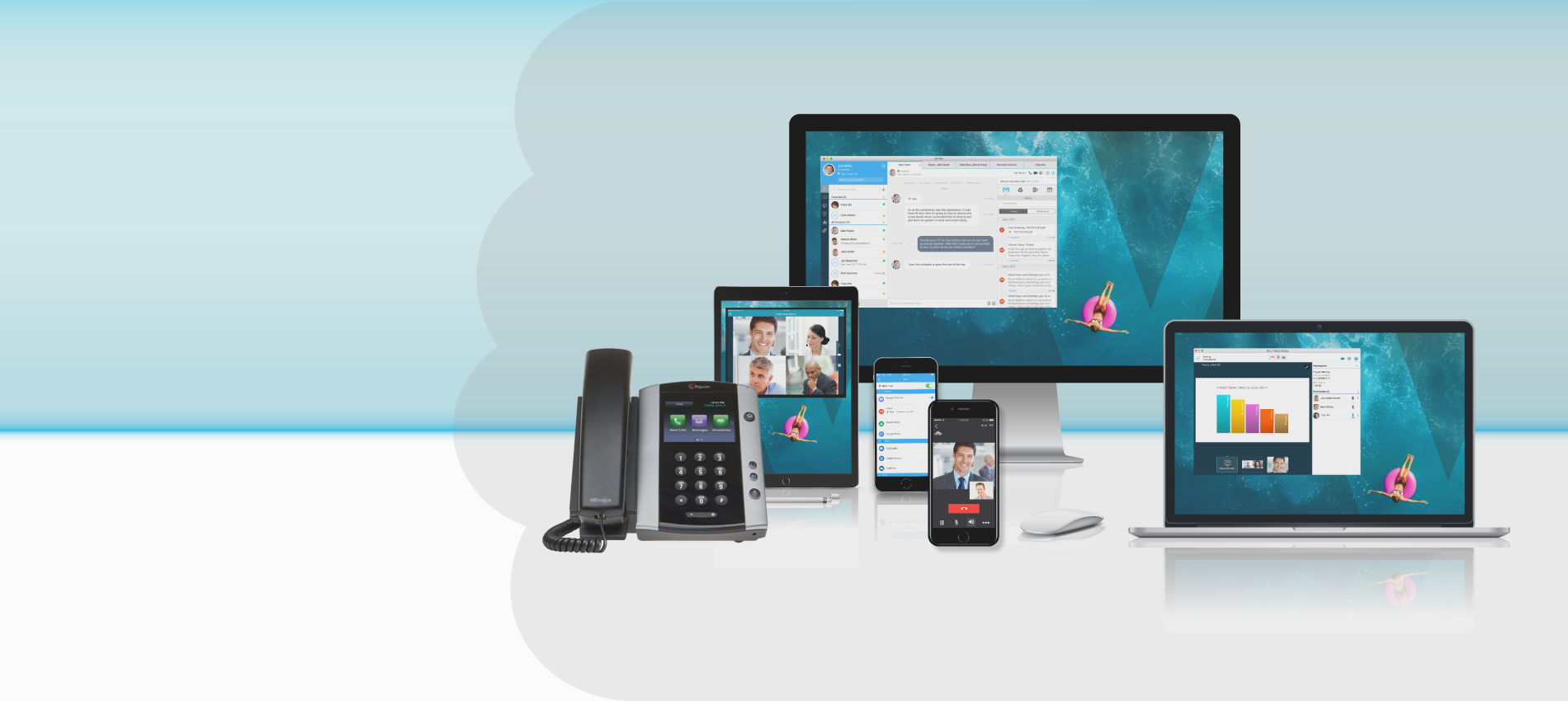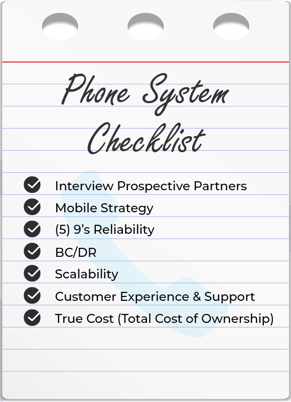Platform
Call Center
Get Started
Wanna subscribe to our blog?
Get updates once a month.
Platform
Call Center
Solutions
Get Started
Wanna subscribe to our blog?
We'll send you updates once a month.
Wanna subscribe to our blog?
Get updates once a month.
Wanna subscribe to our blog?
We'll send you updates once a month.

In part 1 of our 'Microsoft Teams as a Phone System' series, 'Microsoft Teams: The King of INTERNAL Collaboration' we talked about the basic features that Teams already had and recently introduced to help us work through the conditions of the pandemic and beyond.
The ability of the Teams platform to internally collaborate and communicate within and across departments throughout your company is unmatched - and continuously evolving. From the common features like chat and video to the more complex such as channels, Teams has lead the way into what we now know as our go-to virtual office.
However, as mentioned in the previous post, it is lacking an equally superior external communication platform - in other words, a way to connect in a similar way to those not in our immediate network - including potential clients, partners and customers.
When it comes to growing a company and its products, usually more simply referred to as 'sales,' diversifying outreach is just as important, if not more important, than communicating with your colleagues.
For decades, the majority of us accomplished these tasks through our phone systems with the basic hardware and dial tone we all know and love. But because of the innovations made on platforms like Teams, phone system providers had a choice to make - innovate and compete, or fall victim to these technological advancements.
Some might think that with the introduction of platforms like Teams that the old ways of phone system would quickly whither away. The thing is, just like when email was on the rise, actually speaking to each other and hearing our voices rather than just through text still held value - and a lot of it.
In my humble opinion, the rise in technology has been so rapid, we crave some sort of humanity to be woven through the seams of it - and that is what hearing each other's voices provides us. Not to mention it is much easier to pick on things like emotion and how engaged the other side is and using that to pivot and have the most effective conversation possible.
But, of course, phone systems couldn't remain the same. They saw how quickly these new forms of communications caught on, so instead of letting chat, video, etc. take them over, they began integrating these features into their existing voice systems.
This gave the user the power to CHOOSE how they wanted to communicate based on what the situation calls for - considering who they are talking to, what it is about, how complex the conversation needed to be, etc. By doing this, phone systems not only kept a lot of their business, but earned some new customers as well!
And then, as business always does, competition took over. Suddenly, within the last few years, technology in the telecommunications has rapidly evolved - initially to meet the needs of the customers, and then even further to beat out the competition.
Through creativity and constant innovation to their products, the leaders of the industry set a new standard to what key elements universally make up an exceptional business phone system. Pretty exciting stuff for us in the telecom space.
However, that is not what we're focusing on here, because what is truly the kicker isn't these new features, but is the overall communications experience!
Let's dive into it.
 We've all heard the saying 'spend your money on experiences, not things.' Well, the same holds true with your phone system.
We've all heard the saying 'spend your money on experiences, not things.' Well, the same holds true with your phone system.
As I just mentioned, features of a business phone system have become universal - although much more advanced, they are all relatively similar.
When choosing a phone system provider, what we should be focusing on is the overall communications experience the provider is offering and how well it matches up with the visions and operations of your business. This can be in the form of implementing a mobile (remote working) strategy, fostering stronger teamwork/collaboration, 24/7 technical support, business continuity and disaster recovery (BC/DR), scalability, price - really whatever means the most to your success at that given time. Understanding that uniqueness and being able to deliver a product that fits your specific needs is where we set ourselves apart in today's competitive landscape of telecom.
When it comes to mobility, working remote and flexibility, it can be applied to any industry. Whether it is a sales-focused company, customer support agencies, IT, HR, or business administration, it really doesn't matter. Considering what 2020 has shown us, mobility and the ability to work remote is essential. At this point, if a business isn't implementing a remote work strategy, they are behind the 8-ball and putting themselves at risk of another wave of a pandemic and hurting their chances to attract top-level talent.
can be applied to any industry. Whether it is a sales-focused company, customer support agencies, IT, HR, or business administration, it really doesn't matter. Considering what 2020 has shown us, mobility and the ability to work remote is essential. At this point, if a business isn't implementing a remote work strategy, they are behind the 8-ball and putting themselves at risk of another wave of a pandemic and hurting their chances to attract top-level talent.
"Work is an action, not a place" - and that is exactly what they mindset of my generation is becoming.
If you would like to follow trends and stories on working remote, give us a follow on LinkedIn, Facebook and Twitter. We post multiple times a day on the subject, including relative articles, interactive LinkedIn posts and past blogs!
Again, top-level reliability, business continuity/disaster recovery and 24/7 support can be considered useful to most businesses in any industry.
Obviously, you never want your phone system to go down for any amount of time. Sometimes, unfortunately, it does though, and for businesses in industries like healthcare, lives could depend on it.
Thankfully, with today's business phone systems, options are available and usually included when you sign on with a provider - depending on the quality of provider. For example, with Votacall we have earned the label of (5) 9's Reliability (or being reliable to have our system up and running for 99.999% of the time throughout a year). Some other telecom providers are labelled as 99.99% or 99.9% reliable, which still seems great. But, in reality, could cost you an entire day or week's worth of downtime on your system - so choose wisely!
It is also important to have a disaster recovery plan in place in case of natural events - like a storm - that could cause downtime and limit your ability to operate. Again, downtime can be costly. Imagine losing that big deal because the signer tries to call and it sounds like you went out of business. ☠️
Same goes for 24/7 support. This could be important if you want to make an important change to your system or are having issues late at night closing that deal you've been working on for months. This is not offered by all providers, so again, choose wisely!
And last but not least, being able to scale-up your operation (or scale-down) is a powerful tool any business can use to leverage it's profits. Whether you are opening a new office, closing one or acquiring another company, flexibility in being able to add/subtract users, lines and accounts can save you a ton of 💸.
The classic example we like to use is our long-time partner Vineyard Vines who grows and shrinks with their seasonal business highs and lows. For more information on how exactly we do that for them, click here!
To conclude, here are some questions you should be asking your next potential provider to make sure you are getting the best possible experience!
In our next blog, we will dive into the 'Gotcha's' of Team's current external communications capabilities and what it is lacking. As always, if you don't want to wait, you can visit:
These Stories on Customer Experience
No Comments Yet
Let us know what you think